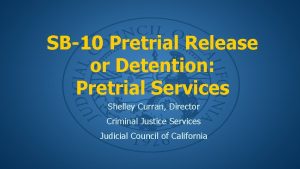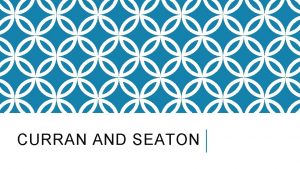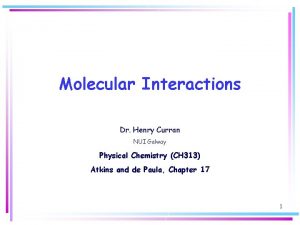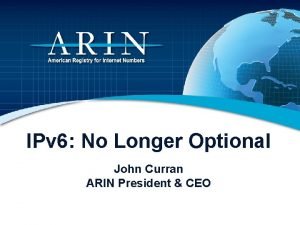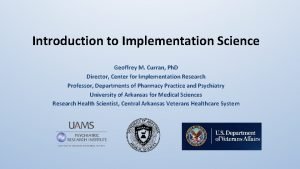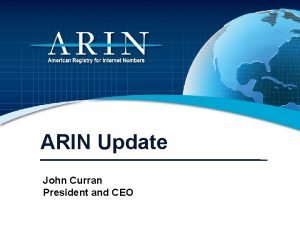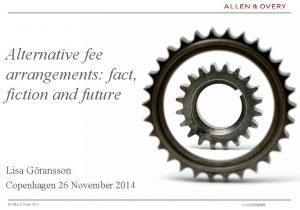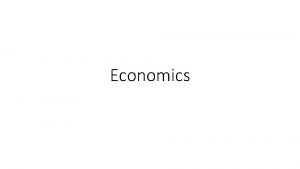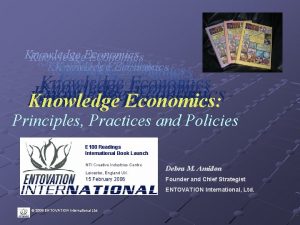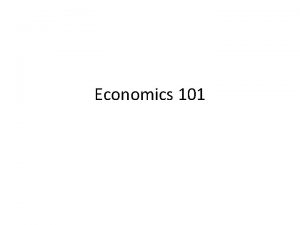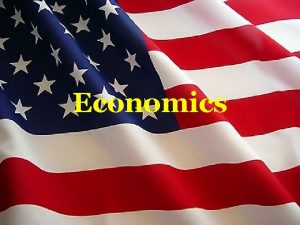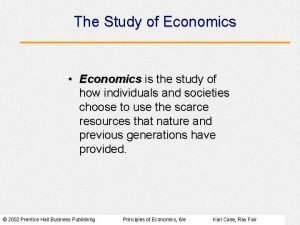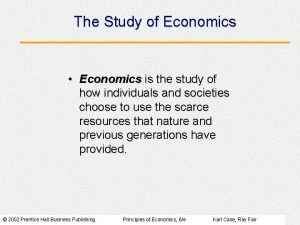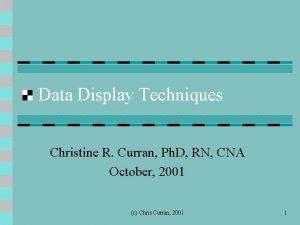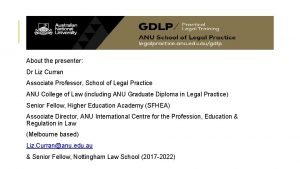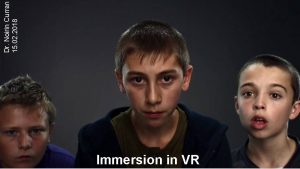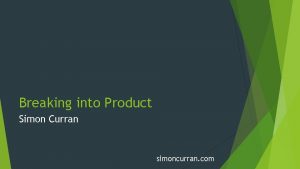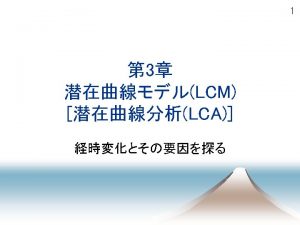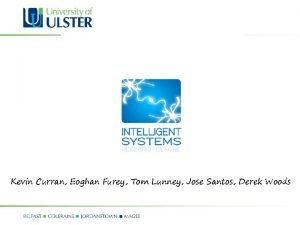ECONOMICS Ms Curran August 17 Economics The study





























- Slides: 29

ECONOMICS Ms. Curran August 17

Economics ■ The study of how individuals, families, business, and societies use their limited resources to fulfill their unlimited wants

2 Types: Micro vs. Macro ■ Microeconomics – The branch of economic theory that deals with behavior and decision making by small units such as individuals and firms. ■ Macroeconomics – The branch of economics theory dealing with economy as a whole and decision-making by large units such as governments.

Need vs Wants ■ Need – something like air, food, or shelter that is necessary for survival ■ Want – an item that we desire but that is not essential to survival – Example….

Scarcity ■ A basic economic problem that exists when there are not enough resources to meet human wants. – NOT a temporary shortage of something. – It goes on… and on… ■ Don’t mix up with shortage – More will come! – Ex: supermarket running out of pizza rolls

Goods & Services ■ Goods – tangible (physical) items that people buy such as medicine, clothing, or computers ■ Services – work that one person performs for another for payment – What are some services that you use? ■ Consumers buy g&s ■ Producers makes g&s

The Three Economic ■ Scarcity leads to three economic questions… Questions 1. What will be produced? 1. A society must decide the mix of goods and services it will produce. 2. How will it be produced? 1. Using scarce resources in the most efficient way to satisfy society’s wants. 3. For whom will it be produced? 1. How goods and services are distributed among people in society. 1. Everyone gets and equal share? 2. How much are you willing to pay?

4 Factors of Production ■ Factors of Production – the economic resources needed to produce goods and services – 4 broad categories… All with the same thing in common… ■ Supply is limited!

4 Factors of Production ■ Land – all natural resources found on or under the ground that are used to produce goods and services ■ Labor – all the human time, effort, and talent that go into the making of products

4 Factors Continued ■ Capital – all the resources made and used by people to produce and distribute goods and services – Physical Capital – a producer’s physical resources; i. e. tools, machinery, factories – Human Capital – the knowledge and skills gained through experience ■ Entrepreneurship – the combination of vision, skill, ingenuity, and willingness to take risks that are needed to create and run new businesses

ECONOMICS Ms. Curran January 6 August 21

Factors of Production Activity You & and partner will be responsible for deciding what Land, Labor and Capital may be needed for each of the products listed on your sheet.

Opportunity Cost This one or that one?

Choices ■ What shapes the economic choices people make? – Incentives – benefits offered to encourage people to act in certain ways – Utility – the benefit or satisfaction gained from the use of a good or service – Economize – make decisions according to what you believe is the best combination of cost and benefit

TANSTAAFL ■ “There Ain’t No Such Thing As A Free Lunch. ” ■ Everything costs something

Opportunity Cost ■ Opportunity Cost – the value of the next-best alternative ■ Trade-off – alternative people give up when they make choices ■ Cost-benefit analysis – weighing the benefits of an action against its costs

Example

Making Choice Chart

ECONOMICS Ms. Curran August 23 BW: Please define opportunity cost in your own words and give an example.

Production Possibilities

Possibilities! ■ Economic model – simplified representations of complex economic activities, systems, or problems, that help clarify trade-offs. ■ Production Possibilities Curve (PPC) – shows the impact of scarcity on an economy ■ Increases a company’s efficiency – But how? ■ By showing the maximum number of goods or services that can be produced using limited resources

PPC – What is it? ■ PPC has 3 important economic concepts: – Scarcity affects production possibilities – people choose what to produce. – Trade-offs are made with any choice – Any choice has opportunity cost.

PPC Assumptions ■ Based on four assumptions: – Resources are fixed – there is no way to get more land, labor, capital, or entrepreneurship. – All resources are being used – economy is at full production – Only two things can be produced – one variable on each axis ■ Ms. Curran says this makes graphing a lot easier… and we’re OK with that. – Technology is fixed – no technological advances will occur.

Example § Look at the pens § Company has options

Learning from PPC ■ Efficiency – condition in which economic resources are being used to produce the max amount of goods and services ■ Underutilization – condition in which economic resources are not being used to their full potential ■ On the graph – Point below the curve = underutilization – Point above curve = impossibility

The Production Possibilities Curve ■ Before we graph…. ■ We must chart!

Production Possibilities Curve: Bread vs. Muffins 12 10 Loaves of Bread 8 6 4 2 0 10 20 30 40 50 Bran Muffins 60 80 90 100 110

Whys it Curved ■ Law of Increasing Opportunity Cost – As production switches from one product to another, increasingly more resources are needed to increase the production. This leads to an increase in opportunity cost.

Review for Test ■ Make sure study guide is completed! ■ Review and come in with any questions tomorrow ■ Test Thursday 8/24
 Shelley curran
Shelley curran Mary ann curran
Mary ann curran Curran and seaton theory
Curran and seaton theory Henry curran nuig
Henry curran nuig John curran arin
John curran arin Geoffrey curran
Geoffrey curran John curran arin
John curran arin John curran allen overy
John curran allen overy Bruce curran
Bruce curran What does jhpiego stand for
What does jhpiego stand for Hình ảnh bộ gõ cơ thể búng tay
Hình ảnh bộ gõ cơ thể búng tay Frameset trong html5
Frameset trong html5 Bổ thể
Bổ thể Tỉ lệ cơ thể trẻ em
Tỉ lệ cơ thể trẻ em Voi kéo gỗ như thế nào
Voi kéo gỗ như thế nào Glasgow thang điểm
Glasgow thang điểm Hát lên người ơi alleluia
Hát lên người ơi alleluia Các môn thể thao bắt đầu bằng tiếng đua
Các môn thể thao bắt đầu bằng tiếng đua Thế nào là hệ số cao nhất
Thế nào là hệ số cao nhất Các châu lục và đại dương trên thế giới
Các châu lục và đại dương trên thế giới Công thức tiính động năng
Công thức tiính động năng Trời xanh đây là của chúng ta thể thơ
Trời xanh đây là của chúng ta thể thơ Cách giải mật thư tọa độ
Cách giải mật thư tọa độ Làm thế nào để 102-1=99
Làm thế nào để 102-1=99 Phản ứng thế ankan
Phản ứng thế ankan Các châu lục và đại dương trên thế giới
Các châu lục và đại dương trên thế giới Thể thơ truyền thống
Thể thơ truyền thống Quá trình desamine hóa có thể tạo ra
Quá trình desamine hóa có thể tạo ra Một số thể thơ truyền thống
Một số thể thơ truyền thống Cái miệng bé xinh thế chỉ nói điều hay thôi
Cái miệng bé xinh thế chỉ nói điều hay thôi
